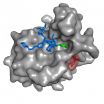(Press-News.org) Vitamin D deficiency is not just harmful to physical health--it also might impact mental health, according to a team of researchers that has found a link between seasonal affective disorder, or SAD, and a lack of sunlight.
"Rather than being one of many factors, vitamin D could have a regulative role in the development of SAD," said Alan Stewart of the University of Georgia College of Education.
An international research partnership between UGA, the University of Pittsburgh and the Queensland University of Technology in Australia reported the finding in the November 2014 issue of the journal Medical Hypotheses.
Stewart and Michael Kimlin from QUT's School of Public Health and Social Work conducted a review of more than 100 leading articles and found a relationship between vitamin D and seasonal depression.
"Seasonal affective disorder is believed to affect up to 10 percent of the population, depending upon geographical location, and is a type of depression related to changes in season," said Stewart, an associate professor in the department of counseling and human development services.
"People with SAD have the same symptoms every year, starting in fall and continuing through the winter months."
Stewart said, based on the team's investigations, vitamin D was likely to be a contributing factor in seasonal depression.
"We believe there are several reasons for this, including that vitamin D levels fluctuate in the body seasonally, in direct relation to seasonally available sunlight," he said. "For example, studies show there is a lag of about eight weeks between the peak in intensity of ultraviolet radiation and the onset of SAD, and this correlates with the time it takes for UV radiation to be processed by the body into vitamin D.
Vitamin D is also involved in the synthesis of serotonin and dopamine within the brain, both chemicals linked to depression, according to the researchers.
"Evidence exists that low levels of dopamine and serotonin are linked to depression, therefore it is logical that there may be a relationship between low levels of vitamin D and depressive symptoms," said Kimlin, a Cancer Council Queensland Professor of Cancer Prevention Research.
"Studies have also found depressed patients commonly had lower levels of vitamin D."
Vitamin D levels varied according to the pigmentation of the skin. People with dark skin often record lower levels of vitamin D, according to the researchers.
"Therefore it is suggested that persons with greater skin pigmentation may experience not only higher risks of vitamin D deficiency, but also be at greater risk of psychological and psychiatric conditions," he said.
Kimlin, who heads QUT's National Health and Medical Research Council Centre for Research Excellence in Sun and Health, said adequate levels of vitamin D were essential in maintaining bone health, with deficiency causing osteomalacia in adults and rickets in children. Vitamin D levels of more than 50 nanomoles per liter are recommended by the U.S. Institute of Medicine.
"What we know now is that there are strong indications that maintaining adequate levels of vitamin D are also important for good mental health," Kimlin said. "A few minutes of sunlight exposure each day should be enough for most people to maintain an adequate vitamin D status."
"Queensland is known as the Sunshine State in Australia but that doesn't mean all Queenslanders get enough vitamin D," Kimlin said. "This research is of international importance because no matter where you live, low levels of vitamin D can be a health concern."
INFORMATION:
URBANA, Ill. - A 12-year University of Illinois study shows that, although the use of cover crops does not improve crop yields, the practice does increase the amount of sequestered soil organic carbon using three different soil management systems.
U of I soil scientist Ken Olson evaluated plots that were subjected to no-till, chisel plow and moldboard plow treatments with and without hairy vetch and cereal rye cover crops.
"By 2012, we found that the soil tillage plots that had cover-crop treatments had more soil organic carbon stock than those without cover crops ...
ROCHESTER, Minn. -- Most patients with triple-negative breast cancer should undergo genetic testing for mutations in known breast cancer predisposition genes, including BRCA1 and BRCA2, a Mayo Clinic-led study has found. The findings come from the largest analysis to date of genetic mutations in this aggressive form of breast cancer. The results of the research appear in the Journal of Clinical Oncology.
"Clinicians need to think hard about screening all their triple-negative patients for mutations because there is a lot of value in learning that information, both in ...
Researchers from Brigham and Women's Hospital (BWH) have identified what they believe to be the cells responsible for fibrosis, the buildup of scar tissue. Fibrotic diseases, such as chronic kidney disease and failure, lung disease, heart failure and cirrhosis of the liver, are estimated to be responsible for up to 45 percent of deaths in the developed world.
The findings are published online in the journal Cell Stem Cell.
"Previous research indicated that myofibroblasts are the cells responsible for fibrosis," said Benjamin Humphreys, MD, PhD, senior author of ...
New research from North Carolina State University and the University of Minnesota shows that the majority of consumers will accept the presence of nanotechnology or genetic modification (GM) technology in foods - but only if the technology enhances the nutrition or improves the safety of the food.
"In general, people are willing to pay more to avoid GM or nanotech in foods, and people were more averse to GM tech than to nanotech," says Dr. Jennifer Kuzma, senior author of a paper on the research and co-director of the Genetic Engineering in Society Center at NC State. ...
Bethesda, MD (Dec. 2, 2014) -- Women with celiac disease present with fertility problems no more often than women in the general population, according to a new study in Gastroenterology1, the official journal of the American Gastroenterological Association.
"Despite inconsistent findings from small studies, concern has been raised that celiac disease may cause infertility," said lead study author Nafeesa N. Dhalwani, PhD, from the University of Nottingham, United Kingdom. "Celiac patients should rest assured; our findings indicate that women with celiac disease do not ...
A research team from Kiel University (CAU) and Goethe University Frankfurt has jointly created a synthetic surface on which the adhesion of E. coli bacteria can be controlled. The layer, which is only approximately four nanometres thick, imitates the saccharide coating (glycocalyx) of cells onto which the bacteria adhere such as during an infection. This docking process can be switched on and off using light. This means that the scientists have now made an important step towards understanding the relationship between sugar (carbohydrates) and bacterial infections. Their ...
This news release is available in German.
The FK506-binding protein 51 (FKBP51) is an established risk factor for stress-related psychiatric disorders such as major depression. Drug discovery for FKBP51 has been hampered by the inability to pharmacologically differentiate against the very similar functional counterplayer FKBP52. Scientists at the Max Planck Institute of Psychiatry in Munich have now developed the first potent and highly selective inhibitor of FKBP51. The so-called SAFit-ligand inhibits FKBP51 enhancing growth of neuronal cell cultures and improving ...
Molecular clocks -- based on changes in genetic material -- indicate much younger ages for a wide variety of plants found as fossils in southern Argentina than do the solid, geologic dates of those fossils, according to geoscientists who surveyed recent paleobotanical discoveries in Patagonia.
The finding suggests serious biases in molecular clocks, which are heavily used to date many kinds of living things. It also directly refutes a widely-held idea about how most Southern Hemisphere plant and animal groups attained their current distributions.
Geologists date fossils ...
A team of scientists has revealed how certain harmful bacteria drill into our cells to kill them. Their study shows how bacterial 'nanodrills' assemble themselves on the outer surfaces of our cells, and includes the first movie of how they then punch holes in the cells' outer membranes. The research, published today in the journal eLife, supports the development of new drugs that target this mechanism, which is implicated in serious diseases. The team brings together researchers from UCL, Birkbeck, University of London, the University of Leicester, and Monash University ...
In the city that never sleeps, it's easy to overlook the insects underfoot. But that doesn't mean they're not working hard. A new study from North Carolina State University shows that insects and other arthropods play a significant role in disposing of garbage on the streets of Manhattan.
"We calculate that the arthropods on medians down the Broadway/West St. corridor alone could consume more than 2,100 pounds of discarded junk food, the equivalent of 60,000 hot dogs, every year - assuming they take a break in the winter," says Dr. Elsa Youngsteadt, a research associate ...



